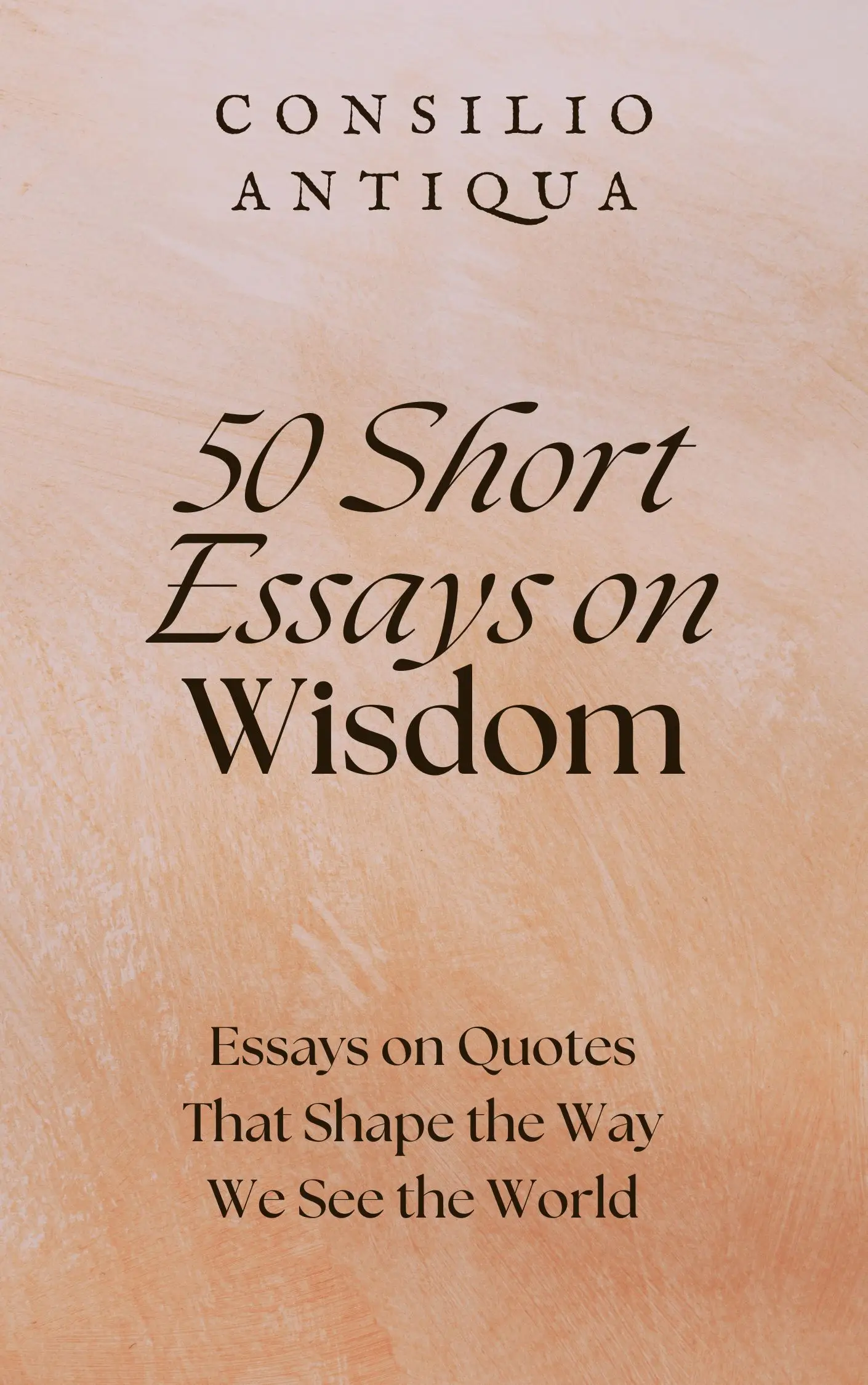
50 Short Essays on Wisdom | The Unseen Landscape
The Unseen Landscape
"Out of sight, out of mind." - Thomas à Kempis
The chipped ceramic mug sits on the shelf, gathering dust. Once a daily companion, a source of warmth on chilly mornings, it's now a silent witness to the passage of time. Its absence from my daily routine hasn't created a gaping hole, but a subtle shift, a quiet acknowledgment of change. This quiet fading, this slow retreat from consciousness, echoes the ancient proverb, "Out of sight, out of mind," a timeless observation on the human experience of memory, attention, and connection. This essay will explore the enduring wisdom of this proverb, examining its historical roots and its surprisingly potent relevance in our modern, digitally saturated world.
The proverb, in various forms, has resonated across cultures and centuries. While its precise origins remain elusive, its essence – the weakening of memory and emotional connection with distance – is universally understood. From ancient Greek philosophers pondering the nature of recollection to medieval mystics contemplating the ephemeral nature of earthly attachments, the idea that absence diminishes presence has been a recurring theme. The proverb’s simplicity belies its profound insight into the human condition: our minds, it suggests, are not limitless repositories but selective filters, prioritizing what is immediately present and accessible.
The proverb's core wisdom lies in its unflinching portrayal of human nature. We are creatures of habit, of immediate sensation. What is constantly before us, what engages our senses and emotions, holds a stronger grip on our attention and memory. Conversely, what is removed from our immediate experience tends to fade, not necessarily into oblivion, but into a hazy periphery of recollection. This isn't a condemnation of our fallible memories; it's an acknowledgment of their inherent limitations, a recognition of the selective nature of our consciousness. The proverb's enduring power stems from its honest reflection of this fundamental truth.
In our hyper-connected world, "out of sight, out of mind" takes on new dimensions. The constant influx of information, the relentless scroll of social media, creates a landscape of fleeting impressions. Relationships, once nurtured through consistent interaction, can wither under the weight of digital distraction. The immediacy of online communication can ironically foster a sense of distance, as meaningful engagement is replaced by superficial interactions. We are bombarded with images and updates, yet the depth of connection often suffers. The physical distance amplified by technology mirrors the emotional distance created by a lack of sustained attention.
Consider the relationships you cherish. What sustains them? Is it the consistent effort to stay connected, to actively cultivate presence, even amidst the demands of modern life? Or does the ease of digital communication sometimes mask a growing distance? The proverb serves as a gentle reminder to be mindful of our attention, to actively nurture the connections that matter most. It's a call to cultivate presence, not just in our physical interactions, but in our mental and emotional engagement with the world and the people around us. What aspects of your life are fading from view, and what can you do to bring them back into focus?
"Out of sight, out of mind" is not a cynical observation, but a poignant reminder of our inherent limitations and the need for conscious engagement. It's a call to cultivate presence, to actively nurture the relationships and experiences that truly enrich our lives. The dust-covered mug on the shelf serves as a quiet reminder: what we choose to keep in sight, what we actively cultivate in our minds and hearts, shapes the landscape of our lives. Let us choose wisely.
